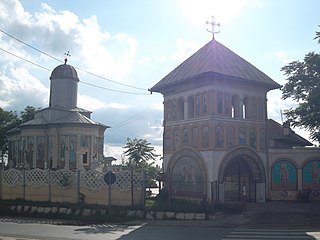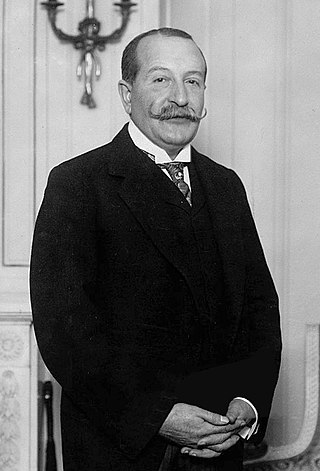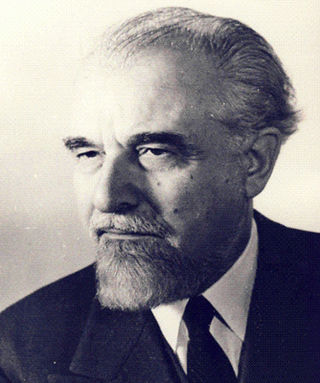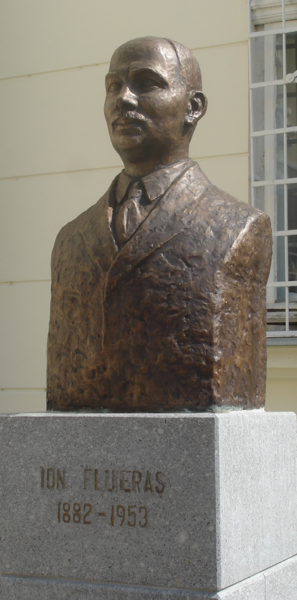History
Magazin Istoric was launched in 1967 with support from the Institute of Historical and Social-Political Studies in Bucharest, which functioned under the direct supervision of the Central Committee of the Romanian Communist Party. The first director was Dumitru Almaş (pseudonym of Dumitru Ailincăi, 1908–1995). The first chief redactor was Constantin Antip (born 27 October 1925) and chief editors were Ion Dragomirescu and Al. Gh. Savu (1931-1991). Redactors: Livia Dandara, Robert Deutsch, Mircea Ioanid, Gheorghe Rădulescu, Marian Ştefan, Răzvan Theodorescu. In 1969, Cristian Popişteanu (1932-1999) became director and Nicolae Minei (1922-2000) chief redactor.
Among the authors were: Ştefan Pascu, V. Vândea, Dan Berindei, Dionisie M. Pippidi, Constantin C. Giurescu, Radu Vulpe, Ştefan Ştefănescu, M.Petrecu-Dâmboviţa, Constantin N. Velichi, Vasile Netea, Ion Ionaşcu, Miron Constantinescu, Corina Nicolescu, I.M.Oprea, C. W. Ceram, Ion Vlăduţiu, Cristian Popişteanu, Eugen Preda, Camil Mureşanu, Anca Stahl, Florica Lorinţ, Augustin Deac, Aurelian Sacerdoţeanu and Al. Gh. Savu.

Jilava is a commune in Ilfov County, Muntenia, Romania, near Bucharest. It is composed of a single village, Jilava.

Armand Călinescu was a Romanian economist and politician, who served as 39th Prime Minister from March 1939 until his assassination six months later. He was a staunch opponent of the fascist Iron Guard and may have been the real power behind the throne during the dictatorship of King Carol II. He survived several assassination attempts but was finally killed by members of the Iron Guard with German assistance.

Alexandru Averescu was a Romanian marshal, diplomat and populist politician. A Romanian Armed Forces Commander during World War I, he served as Prime Minister of three separate cabinets. He first rose to prominence during the peasants' revolt of 1907, which he helped repress with violence. Credited with engineering the defense of Moldavia in the 1916–1917 Campaign, he built on his popularity to found and lead the successful People's Party, which he brought to power in 1920–1921, with backing from King Ferdinand I and the National Liberal Party (PNL), and with the notable participation of Constantin Argetoianu and Take Ionescu.

Take or Tache Ionescu was a Romanian centrist politician, journalist, lawyer and diplomat, who also enjoyed reputation as a short story author. Starting his political career as a radical member of the National Liberal Party (PNL), he joined the Conservative Party in 1891, and became noted as a social conservative expressing support for several progressive and nationalist tenets. Ionescu is generally viewed as embodying the rise of middle-class politics inside the early 20th century Kingdom of Romania, and, throughout the period, promoted a project of Balkan alliances while calling for measures to incorporate the Romanian-inhabited Austro-Hungarian regions of Transylvania, Banat and Bukovina. Representing his own faction inside the Conservative Party, he clashed with the group's leadership in 1907–1908, and consequently created and led his own Conservative-Democratic Party.

Constantin Argetoianu was a Romanian politician, one of the best-known personalities of interwar Greater Romania, who served as the Prime Minister between 28 September and 23 November 1939. His memoirs, Memorii. Pentru cei de mâine. Amintiri din vremea celor de ieri —a cross section of Romanian society, were made known for the sharp critique of several major figures in Romanian politics.

Clubul Sportiv Municipal Jiul Petroșani, commonly known as Jiul Petroșani, simply as Jiul, is a professional football club based in Petroșani, Hunedoara County, founded in 1919 under the name of CAM Petroșani. Jiul Petroșani is one of the oldest active clubs in Romania. Founded before teams such as Steaua București, Dinamo București or Rapid București, Jiul, at its best, was ranked 2nd (1924–25) in the top-flight. For most of its existence, Jiul has been a constant presence in the first two tiers of the Romanian football league system, making it a traditional club in the country. In 1990, the closure of the Jiu Valley mines, the main engine of the local economy, led to the decay of Jiul, annually putting the team in danger of bankruptcy.

Ștefan Voitec was a Romanian Marxist journalist and politician who held important positions in the state apparatus of Communist Romania. Debuting as a member of the Socialist Party of Romania in his late teens, he formed the Socialist Workers Party of Romania, then the United Socialist Party, while also engaging in human rights activism and advocating prison reform. The mid-1930s brought him into contact with the Romanian Communist Party, with whom he formed tactical alliances; however, he rejected its political line, and was for a while known as a Trotskyist. In 1939, he joined the consolidated Social Democratic Party, which reunited various socialist groups outlawed by the National Renaissance Front. During World War II, despite ostensibly withdrawing form political life to do research, Voitec served as the party's Secretary and joined the anti-fascist underground. Some reports suggest that he was also a committed anti-communist, critical of the Soviet Union to the point on endorsing war in the East. As a war correspondent, Voitec made contributions to Nazi propaganda, an issue which made him vulnerable to blackmail in later decades.

IoanFlueraș was a Romanian social democratic politician and a victim of the communist regime.
The Polish–Romanian alliance was a series of treaties signed in the interwar period by the Second Polish Republic and the Kingdom of Romania. The first of them was signed in 1921 and, together, the treaties formed a basis for good foreign relations between the two countries that lasted until World War II began in 1939.
The Socialist Party of Romania was a Romanian socialist political party, created on December 11, 1918 by members of the Social Democratic Party of Romania (PSDR), after the latter emerged from clandestinity. Through its PSDR legacy, the PS maintained a close connection with the local labor movement and was symbolically linked to the first local socialist group, the Romanian Social-Democratic Workers' Party. Its creation coincided with the establishment of Greater Romania in the wake of World War I; after May 1919, it began a process of fusion with the social democratic groups of in the former territories of Austria-Hungary — the Social Democratic Parties of Transylvania, Banat and Bukovina. The parties adopted a common platform in October 1920. Progressively influenced by Leninism, the PS became divided between a maximalist majority supporting Bolshevik guidelines and a reformist-minded minority: the former affiliated with the Comintern as the Socialist-Communist Party in May 1921, while the minority eventually established a new Romanian Social Democratic Party.

Constantin Mille was a Romanian journalist, novelist, poet, lawyer, and socialist militant, as well as a prominent human rights activist. A Marxist for much of his life, Mille was noted for his vocal support of peasant emancipation, for his early involvement with the Romanian Social Democratic Workers' Party (PSDMR), and his presence at the head of several magazines, culminating in his association with the moderate left-wing newspapers Adevărul and Dimineața. After serving as an independent member of the Chamber of Deputies for one mandate (1899-1903), he aligned his views with those of Take Ionescu, and became a supporter of Romania's entry into World War I alongside the Entente Powers. In addition to his political career, Mille was the author of two autobiographical novels.

Vasile Vasilievici Stroescu, also known as Vasile de Stroesco, Basile Stroesco, or Vasile Stroiescu, was a Bessarabian and Romanian politician, landowner, and philanthropist. One of the proponents and sponsors of Romanian nationalism in Russia's Bessarabia Governorate, as well as among the Romanian communities of Austria-Hungary, he was also a champion of self-help and of cooperative farming. He inherited or purchased large estates, progressively dividing them among local peasants, while setting up local schools and churches for their use. An erudite and traveler, he abandoned his career in law to focus on his agricultural projects and cultural activism. For the latter work, he became an honorary member of the Romanian Academy.

George Ivașcu was a Romanian journalist, literary critic, and communist militant. From beginnings as a University of Iași philologist and librarian, he was drawn into left-wing antifascist politics, while earning accolades as a newspaper editor and foreign-affairs journalist. As editor of Manifest magazine, he openly confronted the Iron Guard and fascism in general. In the mid-1930s, he became a member of the Romanian Communist Party (PCdR), though he maintained private doubts about its embrace of Stalinism. Despite enjoying protection from the more senior scholar George Călinescu, Ivașcu was persecuted, and went into hiding, during the first two years of World War II. He reemerged as a pseudonymous correspondent, then editorial secretary, of the magazine Vremea, slowly turning it away from fascism. In parallel, he also contributed to the clandestine left-wing press and supported the resistance groups, preparing for an Allied victory.

Eternitaté is the biggest cemetery in Iași, Romania. It was classified as a historical monument in 2020.

Dumitru Almaș was a Romanian journalist, novelist, historian, writer and professor. His prolific output included children's literature, historical novels and textbooks. He was honored by both the Romanian Writers' Society and the subsequent Writers' Union of Romania. He also served as a member of the board of Society for Historical Sciences of Romania.
Constantin Gheorghe Banu was a Romanian writer, journalist and politician, who served as Arts and Religious Affairs Minister in 1922–1923. He is remembered in literary history as the founder of Flacăra review, which he published in two editions, alongside Petre Locusteanu, Ion Pillat, Adrian Maniu, and, later, Vintilă Russu-Șirianu. A best-selling magazine for its time, it functioned as a launching pad for several writers of the Romanian Symbolist movement.

Doina, or Doină, is a political poem by the Romanian Mihai Eminescu. It was first published in 1883 and is therefore seen by some as Eminescu's final work in verse, although it may actually be an 1870s piece, inspired or enhanced by the perceived injustice of the Berlin Treaty. A variation of the doina, picked up from Romanian folklore, it is noticeably angry to the point of rhetorical violence, a radical expression of Romanian nationalism against invading "foreigners", with additional hints of ecopoetry and "anti-technicist" discourse. Doina delineates the ideal geographical space of Greater Romania, at a time when Romanian-inhabited regions were divided between an independent kingdom and multinational empires. Its final lines call on Stephen the Great, depicted as a sleeping hero, to take up the cause of Romanians and chase foreigners out with the sound of his horn. The same basic themes appear in another poem by Eminescu, the anthem-like La arme, which is sometimes discussed as a variant of Doina.

Armand Călinescu, the then Prime Minister of Romania, was assassinated on 21 September 1939, aged 46, in Bucharest by Iron Guard members under the direct leadership of Horia Sima. This was the culmination of several assassination attempts against him, which included an attack on the Romanian Athenaeum and bombing a bridge over the Dâmbovița River — both of which were uncovered by police. Călinescu was on a secret blacklist at the same time as Nicolae Titulescu, Dinu Brătianu, and General Gabriel Marinescu.
Events from the year 1947 in Romania. The year saw the abdication of Michael I of Romania and foundation of the Romanian People's Republic.

















